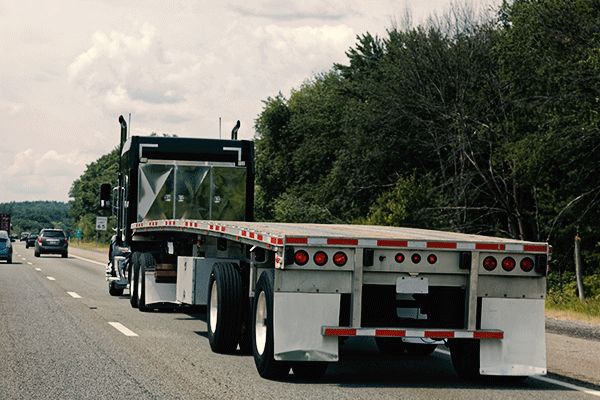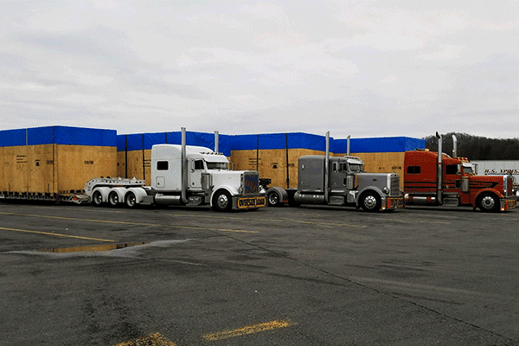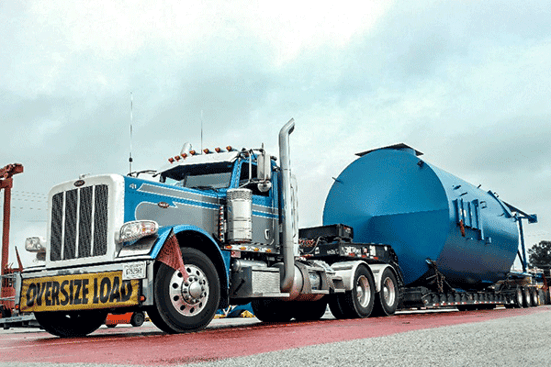
Many shippers rely on brokers to find capacity and manage loads, yet not all brokers operate with the same level of transparency, communication, or accountability.
When problems do arise with a freight broker — like poor communication, unreliable carriers, or unexpected fees — they threaten to derail the very supply chain it was meant to support.
The good news? With the right logistics provider, shippers can avoid most of these frustrations and keep freight moving smoothly.
ATS Logistics, a freight brokerage and sister company to Anderson Trucking Service (ATS), has been in the brokerage business for decades. We've seen our fair share of brokers plagued with issues that lead to disappointed customers and poor word-of-mouth.
Unfortunately, not every problematic brokerage's reputation precedes them. Shippers must thoroughly vet brokers before committing any freight to them, and remain diligent throughout the shipper-broker relationship for any warning signs of trouble ahead.
In this article, we'll break down the five biggest (and most common) problems you might encounter when working with a freight broker. Along the way, we'll give our expert tips on how to avoid them, so you can proactively protect your supply chain and your relationships.
Key Takeaways for Shippers:
- Most freight broker issues stem from poor communication, limited visibility, or weak carrier vetting.
- Clear expectations, transparency, and due diligence can prevent most costly mistakes.
- Shippers should vet brokers the same way they'd evaluate any business partner: on reliability, integrity, communication, and track record.

1. Poor Communication
Freight moves fast — so shipment information should, too. One of the biggest frustrations shippers face is inconsistent communication from brokers. Missed calls, vague updates, last minute surprises — or in worst-case scenarios, total ghosting — can make it difficult for shippers to plan freight movement and serve their customers reliably.
How to Avoid It: Establish communication expectations early. Ask your broker how often you’ll receive updates, who your main point of contact is, and what systems they use for tracking and notifications. A reliable broker will be transparent and proactive about keeping you informed.
During your vetting process, you can also ask brokers to connect you with a current or former customer so you can talk with them about their experience. Consider asking these customers questions like:
- How easy was it to communicate with this brokerage?
- Did they make your needs feel validated and addressed?
- How is their track record with your shipments?
- How did they respond when something went wrong?
- What kind(s) of load tracking do they offer?
- What did you like about your experience with this broker? What did you not like?

2. Inconsistent Service
Inconsistency is one of the most frustrating pain points for shippers. Service quality can vary widely depending on which carrier the broker selects, how familiar they are with your freight, or how busy they are on a given day.
One shipment goes smoothly, the next is full of surprises . . . and you're left exhausted from managing the ripple effects of this uncertainty across your supply chain. Yikes.
This unpredictability makes it harder to plan inventory, set customer expectations, and trust the reliability of your shipping cadence.
How to Avoid It: Discuss performance expectations early and ask about the broker’s internal quality controls. Consider questions like:
- Do they track carrier on-time deliver (OTD) performance?
- Do they measure service quality across lanes, modes, and seasons?
- Do they assign dedicated personnel (single point of contact) to accounts for consistency?
The more structure a brokerage has around process and accountability, the more reliably they can deliver consistent service.
3. Hidden Fees & Pricing Surprises
Transparent pricing (or lack thereof) is among the top shipper concerns about brokerages. At first glance, a broker's rate might look like a great deal — that is, until unexpected accessorials, detention charges, fuel surcharges, or other hidden fees appear on your invoice.
These surprise costs can quickly turn a low rate into an expensive shipment.
What's more, some under-resourced brokers have a hard time sticking to the rate they originally quoted. This can lead to a bait-and-switch situation in which a shipment is quoted at one rate, then billed at another after the customer has awarded that freight to the broker.
The good news is that the freight industry at large does not condone this practice, and brokerages that develop a reputation for this bad behavior are typically blacklisted by carriers and shippers alike.
Still, it's critical that both brokerages and shippers do their part to facilitate transparency and integrity in the quoting process and beyond. Your best-fit broker will be trustworthy and upfront about pricing, so you can feel confident that the rate you were quoted is the rate you will pay.
How to Avoid It: Before you award any freight to a broker, vet them on their rate calculation and pricing protocols. Ask:
- How do you calculate your rates?
- At what point do accessorials start to accrue? How are those priced?
- How do you handle market shifts and price fluctuations? Will you adjust my original rate to avoid taking a loss yourselves, or will your stand by the original quote even if it puts you at a loss?
When you're ready for a quote, request an itemized quote that clearly outlines every potential charge. Reputable brokers will be upfront about all possible costs and explain how rates are calculated. Always read the fine print before agreeing to a load.
4. Accountability Issues
Accountability is important in any relationship, and shipper-broker relationships are no exception. Missed pickups, unclear delivery windows, and limited support when something goes wrong can leave shippers scrambling for answers — or for a new brokerage altogether.
These problems usually stem from weak processes, inconsistent communication, or limited oversight of carrier partners.
Reliable brokers, on the other hand, set clear expectations, communicate early when timelines are at risk, and respond quickly when disruptions occur. Even when unforeseen issues like mechanical breakdowns or weather delays are unavoidable, accountable brokers stay engaged and work to protect the shipper’s schedule.
How to Avoid It: When evaluating a broker, ask for an example of a shipment that didn’t go as planned and how they handled it. Also ask how they monitor carrier performance and whether they remove carriers with a history of no-shows or delays.
A good brokerage should have clear systems that reinforce accountability, not leave you holding the bag when things go wrong.

5. Poor Carrier Vetting
If we've said it before, we've said it a thousand times: a freight brokerage is only as strong as the weakest carrier in its network.
The size, diversity, quality, and reliability of a broker's carrier network can make or break their business. Most brokerages are highly invested in ensuring their network is as well-vetted and high-quality as it can be — most, but not all.
Poorly-vetted (or flat-out unvetted) carriers may not provide great service or maintain strong safety standards and protocols. If a broker happens to place your load in the hands of one of these unreliable carriers, it can lead to damaged freight, late deliveries, or even accidents and compliance issues.
How to Avoid It: During your vetting process, ask how the broker screens and monitors carriers for their network. Do they review safety scores, insurance, and performance history regularly? Do they adhere to any internal standards of OTD, safety, etc?
Brokerages that are operating above-board will have a proven investment in the integrity of their networks as evidenced by clear vetting procedures and performance metrics for every carrier.
Choosing a Broker You Can Rely On
Navigating the freight market can feel overwhelming, especially when communication lapses, service quality varies, or accountability falls short. But you deserve a shipping experience that feels predictable, transparent, and well-supported.
The companies that ship with confidence aren’t relying on luck; they’re relying on brokers who communicate clearly, take ownership when things go wrong, and commit to improving the process every time freight moves. When you understand the most common brokerage pitfalls — and the questions that reveal how a partner truly operates — you put yourself in control of your logistics outcomes.
If you’re evaluating brokerage options or want guidance on what to look for, consider reaching out to ATS Logistics. We’re here to help you make decisions that keep your freight and your business moving forward.



